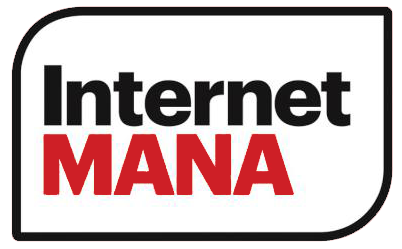Ae marika! 14 August 2012
Posted on August 14, 2012 by admin in Ae MarikaThe 9th of August was the United Nations International Day of the World’s Indigenous Peoples, a day that is observed every year to promote the rights of Indigenous Peoples. In 2010 New Zealand agreed to support the United Nations’ Declaration on the Rights of Indigenous Peoples (UNDRIP), signalling the possibility of positive change for Maori.
So we decided that on the 2012 International Day of the World’s Indigenous Peoples we would see whether or not our government matched up to its commitment to the UNDRIP. Here’s what we found.
REPORT CARD
National / Maori Party Government, 09 Aug 2012 – Commitment to the UNDRIP
An education in our own language and culture (Article 14): The National / Maori Party government has invested no new money to grow and develop Māori immersion education, and enrolments in kōhanga, kura, wharekura and wānanga are declining as a result. Instead government is investing in wealthy private schools for Pakeha children, and charter schools with unregistered teachers for Māori children in low-decile communities. FAIL
Participate in paid work (Article 17): The National / Maori Party government has failed to ensure Māori have access to jobs. Māori unemployment is nearly three times that of Pākehā, and when in work Māori earn significantly less than non-Māori – even when doing the same job. Official statistics show the income gap has widened since 2008. FAIL
Participate in decision-making through our own representation (Article 18): The National / Maori Party government has failed to provide for proper Māori representation on key bodies and groups e.g. Auckland Council, and the Environmental Protection Authority (who approve applications for seabed mining and drilling). Instead, Māori advisory bodies continue to be routinely ignored. FAIL
Improved housing (Article 21): In 2011, the Auditor-General found that the process for whānau to build on Māori land remains too difficult for most, and was very poorly funded. Most of the limited funds allocated by the National / Maori Party government for Māori housing in Northland in 2012 went to non-Maori projects. FAIL
A high standard of health (Article 24): A 2012 study found that Māori, and especially Māori children, were much more likely to contract third world diseases than non-Māori. It also found that the situation was worsening, with more than a third of Maori children living in poverty – an unacceptable scenario in 21st century Aotearoa. Reports confirmed that better incomes, health and housing for whānau were urgently needed to reverse this trend, but statistics showed that under the current National / Maori Party government, income levels and health and housing standards for Maori were actually declining. FAIL
To own, use and develop our lands, and for countries to recognise and protect this right (Article 26): Under the Foreshore and Seabed Act Mark II (the Marine and Costal Area Act 2011) not one customary marine title has been granted to Māori, The confiscation of Māori foreshore and seabed since 2004 continues unabated under this National / Maori Party government. FAIL
Give consent to projects affecting our lands and resources, particularly water (Article 32): Government is pushing ahead with the sale of shares in state-owned power companies without the consent of Māori, and before Māori ownership interests in water have been determined and settled. The National / Maori Party government has indicated that it will legislate against Māori ownership in water. FAIL
FINAL ASSESSMENT: FAILED – The National / Maori Party government has failed to honour its obligations under the United Nations’ Declaration on the Rights of Indigenous Peoples.
AE MARIKA is an article written every week by Hone Harawira, leader of the MANA Movement and Member of Parliament for Te Tai Tokerau. You are welcome to use any of the comments and to ascribe them to Mr Harawira. The full range of Hone’s articles can be found on the MANA website at www.mana.net.nz.



Discussion · No Comments
There are no responses to “Ae marika! 14 August 2012”.No one has posted a comment on this post yet. Start the discussion!
Leave a Comment